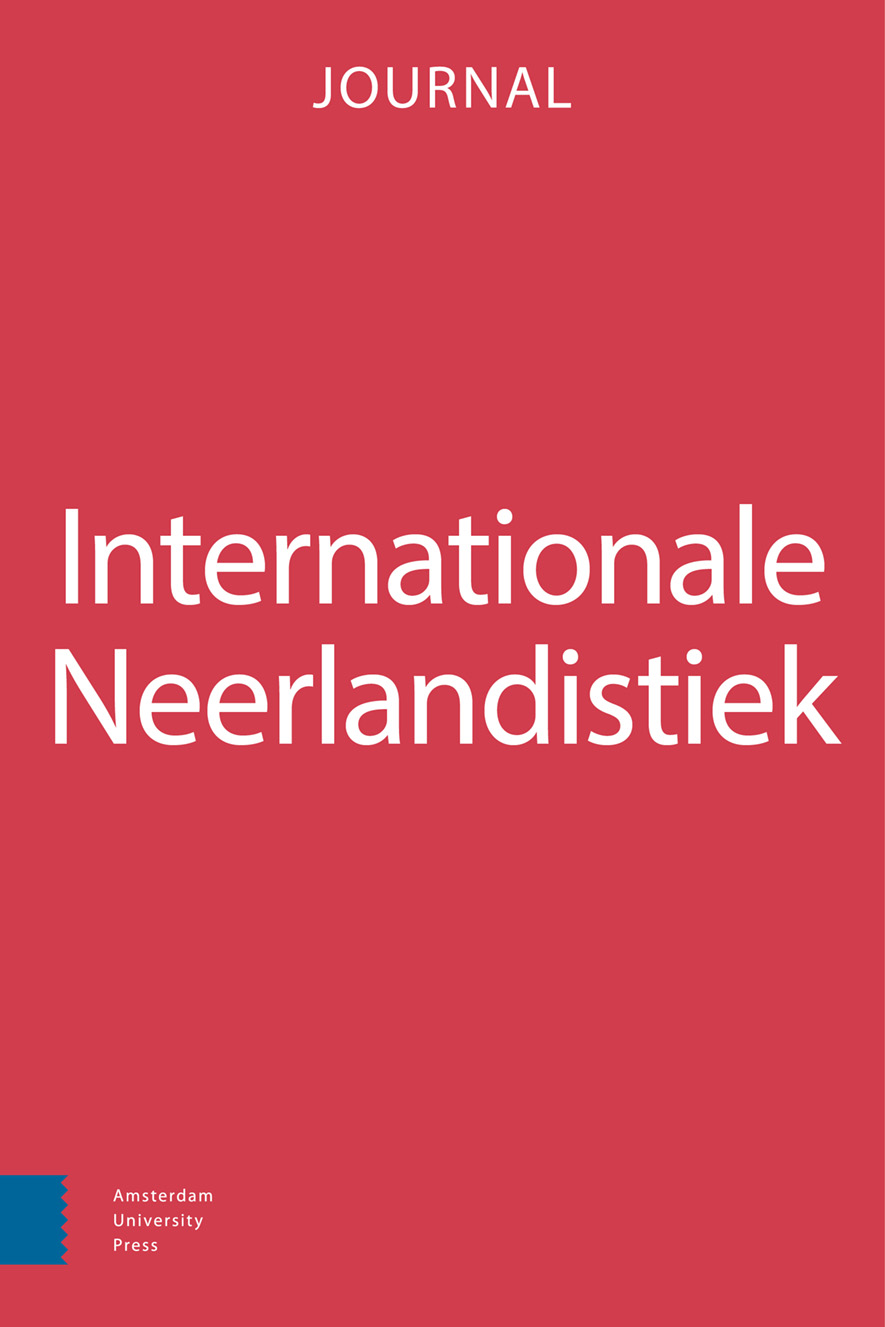-
oa De vertelling van Groenkapje
Over het feministische potentieel van de Roodkapje-herwerking van Naema Tahir
- Amsterdam University Press
- Source: Internationale Neerlandistiek, Volume 57, Issue 3, Nov 2019, p. 225 - 236
-
- 01 Nov 2019
Abstract
The wide range of Red Riding Hood versions is a sign of the fairy tale’s popularity. According to Judith Roof, the narrative itself produces multiple story variations. She does not approach narrative as a structural pattern but as a system of elements governed by certain rules. New versions of Red Riding Hood are the result of shifting and recombining story elements in relation to such rules and do not necessarily have to reinforce the heteronormative patriarchal order. I build upon Roof’s assumption about Red Riding Hood’s feminist potential, while focusing my attention on postwar Dutch fiction. More specifically, I examine an adaptation by Muslim feminist author Naema Tahir, in which the feminist potential is mainly realised by not depicting the Islamic religion as singularly female-oppressive.


